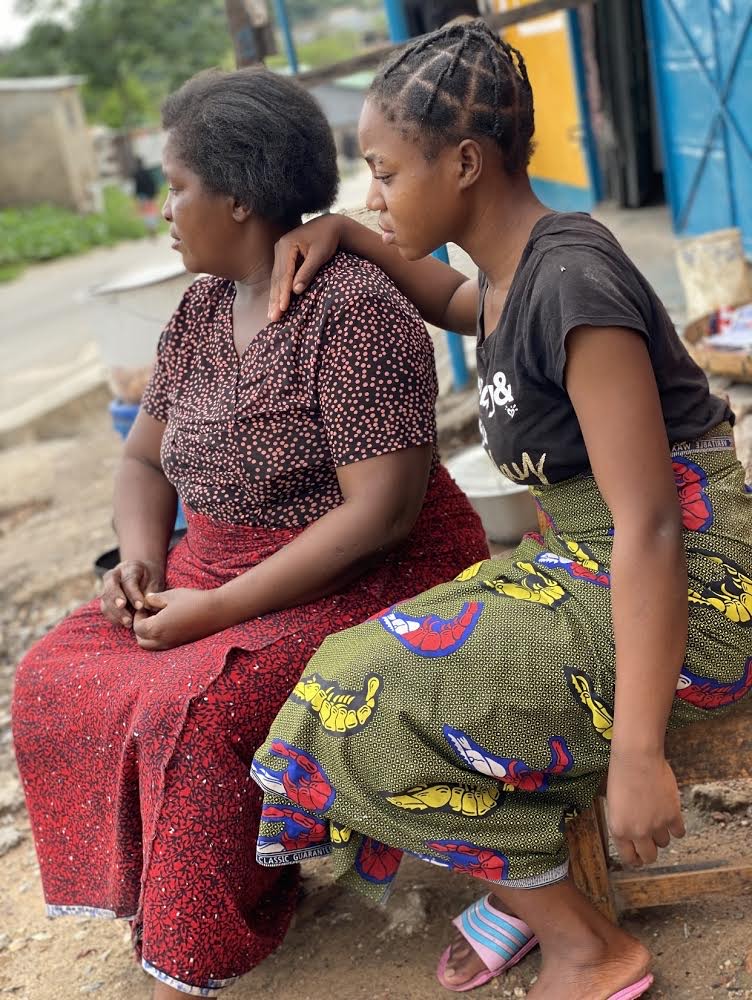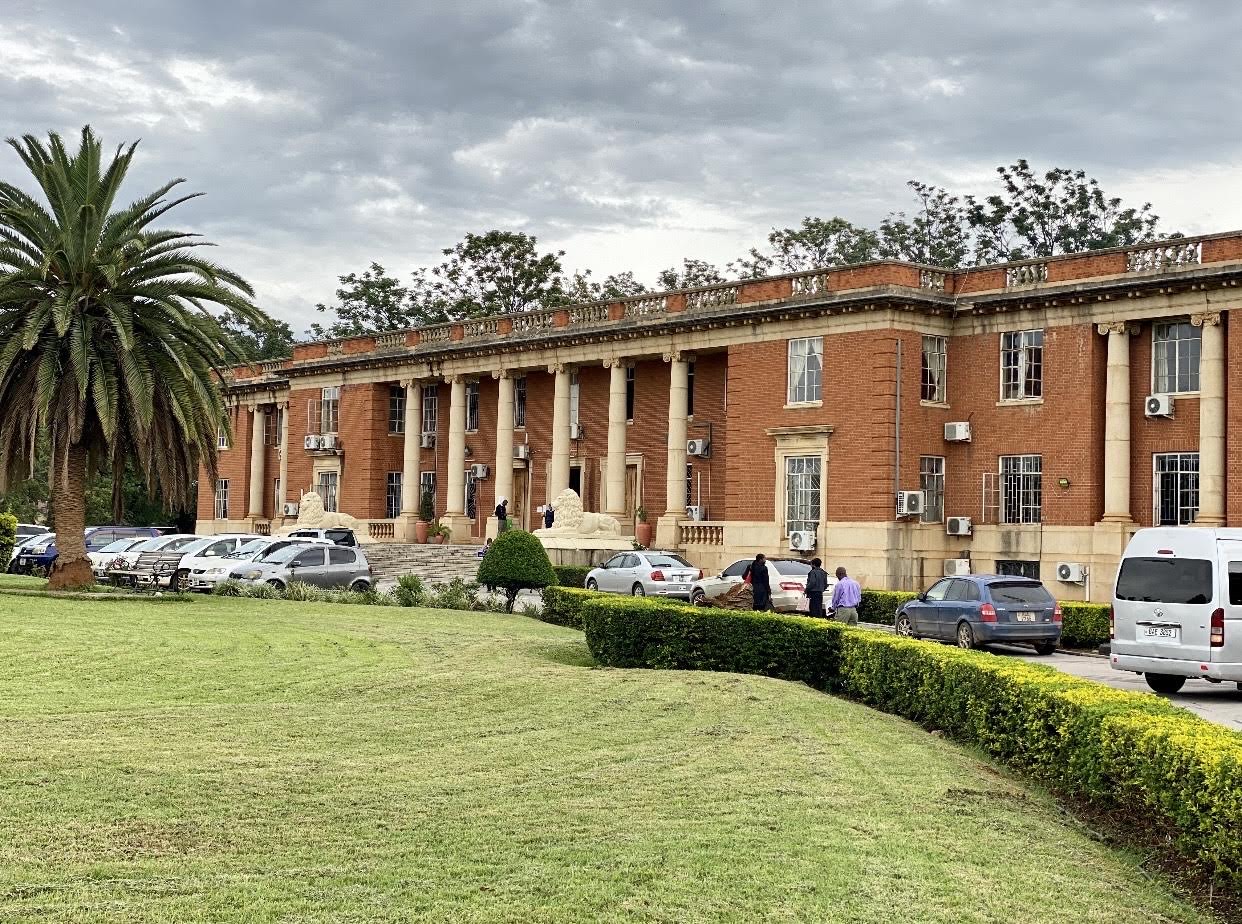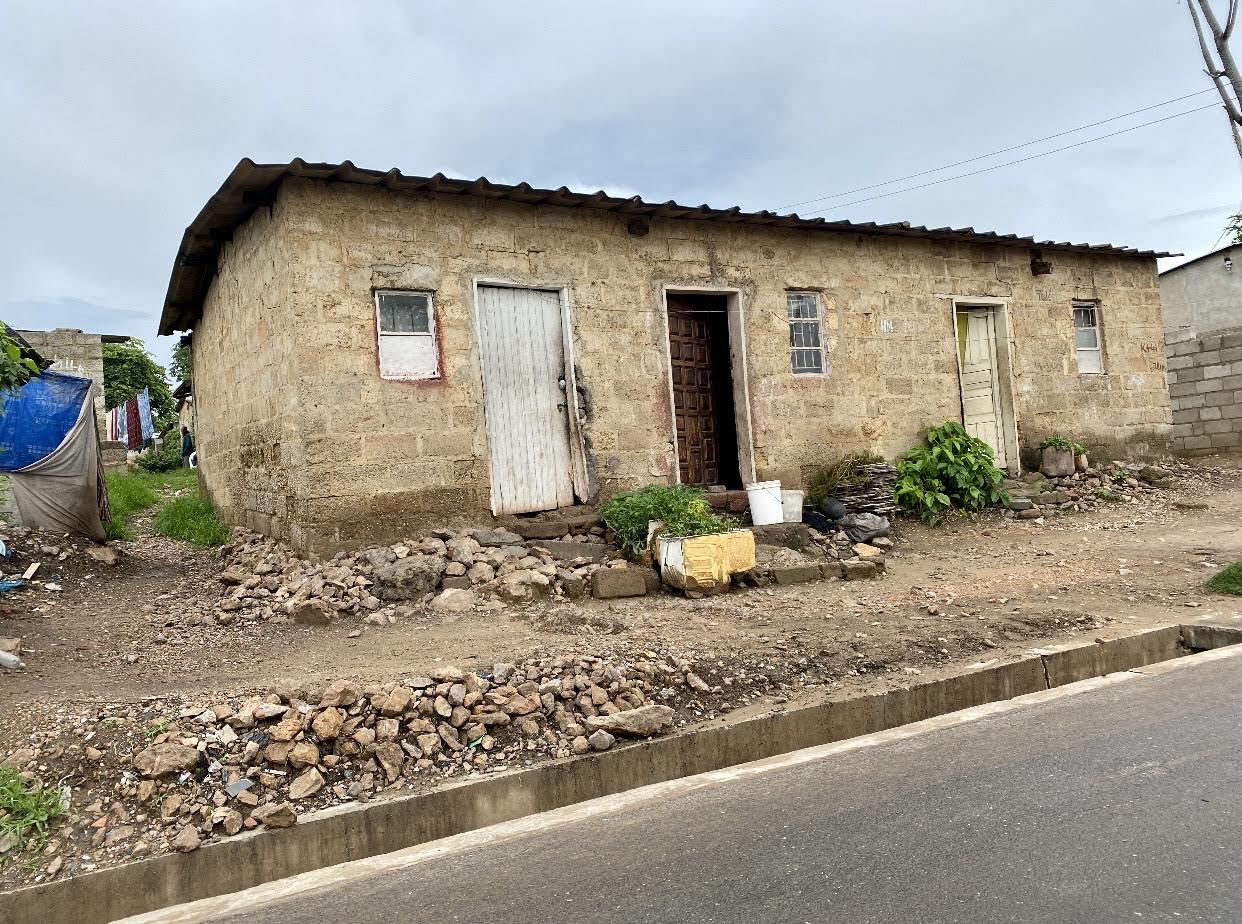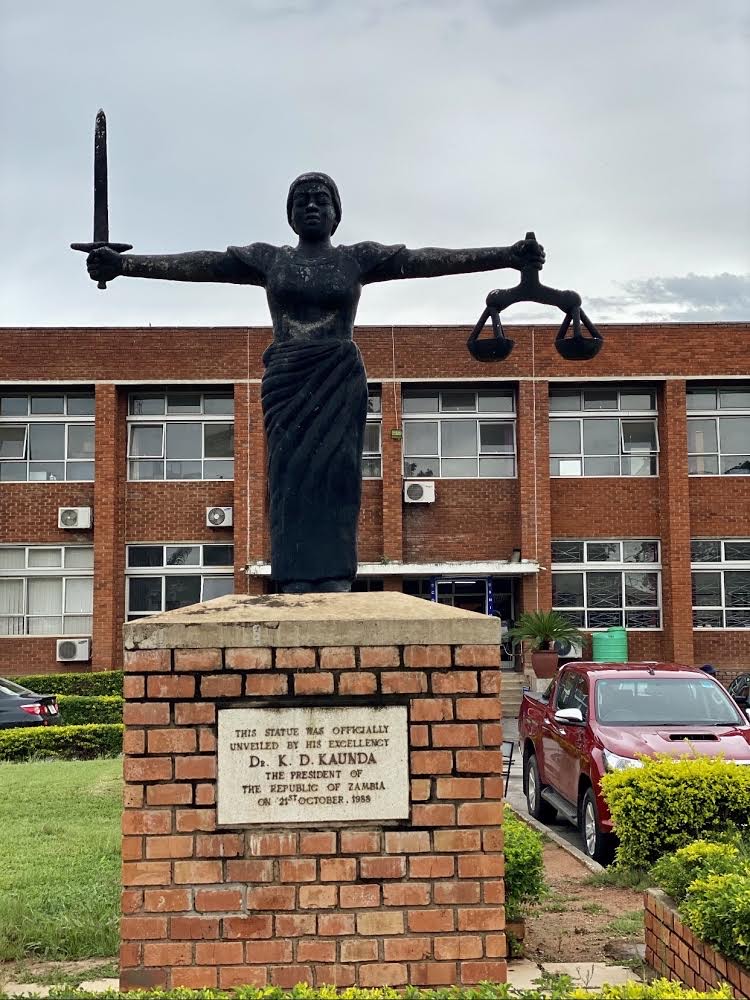Stories and pictures by Zanji Sinkala
A year ago, Chembe Kawele’s life seemed rooted firmly in the middle class. She lived in Northmead, an affluent neighborhood in Lusaka, and worked as an accountant at a telecommunications firm downtown, while her husband was an investment manager. The family was so comfortable that Kawele quit her job to be a full-time mother, sustaining the family on her husband’s income.
Then coronavirus hit. Kawele’s husband, who already suffered from high blood pressure, contracted COVID-19 in March this year. One month later, the virus killed him.
The loss would prove devastating. Beyond the grief of losing her husband and of her daughters losing their father at 7 and 15 years old, Kawele and her children faced the prospect of losing whatever remained to the husband’s family, including their home.
 Leziya and her last born daughter Dailesi Phiri in their neighborhood.
Leziya and her last born daughter Dailesi Phiri in their neighborhood.
The tradition, known as property grabbing, involves relatives of a widow’s husband claiming her as an inheritance, along with everything the husband has owned. The practice has long threatened widows in Zambia, but coronavirus has significantly heightened their risk.
Almost immediately after her husband’s death, a woman’s in-laws evict her and her children from her marital home, often sending them onto the street with no financial help. Property grabbing, though officially declared a crime in Zambia, has been strikingly normalized, and is seldom even reported.
Nevertheless, advocates report that the practice has grown as the pandemic has spread in Zambia.
According to the Zambian non-governmental organization, Women and Law in Southern Africa Trust (WLSA), property-grabbing is among the top five most frequently consulted legal problems among Zambian women.
 The Judiciary of Zambia.
The Judiciary of Zambia.
Since the COVID 19 pandemic hit Zambia in February 2020, recorded cases of property grabbing increased by 32% according to the Victim Support Unit of the Zambian Police, to 104 cases in 2020 alone from 79 cases between 2013 and 2019. The rise in mortality, poverty, high unemployment and inflation by the current global pandemic this year has triggered a devastating onslaught of property grabbing targeting widows, who see their grief followed by the complete loss of their homes, property acquired with their husbands and their ways of life.
Some parts of Zambia uphold a traditional practice called Widow Inheritance. According to the Justice for Women and Orphans Project (JWOP), which is an organization involved in the strengthening of widows’ and orphans’ inheritance and property rights, this is the definite expectation that if a husband dies, his widow will marry (be inherited by) another male of her husband’s family. Related to this is sexual cleansing, in which the widow is expected to have sex with a male member of her late husband’s family. Both practices stem from the belief that the spirit of the dead spouse will haunt, not only the family, but the entire village if it is not purged in one of these ways.
Chembe’s husband died without a will, leaving her and the children particularly vulnerable. His brother applied for the role of administrator, in charge of sharing the properties of the deceased on behalf of the entire family.
“I was assured that Mwewa, my brother in-law, was the best person to appoint as administrator, because he was the only surviving sibling to my deceased husband,” Chembe narrates, “Both their parents died many years ago.”
The Intestate Succession Act of Zambia outlines that 50% of a deceased person’s property ought to be allocated to their children, 20% to their surviving spouse and 30% to their parents or siblings respectively. During the process of property sharing, Mwewa disregarded all legal procedures and took possession of the total amount of property of the deceased and his family. This left Chembe and her 2 daughters on the street with no shelter or food. Worse more, the education of her children was halted indefinitely because she could not afford to pay for their school fees. This prompted her to seek legal help from the Local Court in Lusaka, which proved futile.
 The front view of the house Leziya is fighting to live in.
The front view of the house Leziya is fighting to live in.
“I approached the court clerks at the Local Court because those are the people to see when you are requesting a hearing,” she explained, “They told me I knew what to do if I wanted to succeed in a legal battle of that nature. By that, they meant I needed to pay them some money for the hearing to work in my favor.”
Chembe began to seek legal help from the National Legal Aid Clinic for Women in Zambia and the Victim Support Unit of the Zambian Police for legal action to be taken against her brother in- law. However, 3 months later, her brother in-law has still not been pursued by authorities. As a result, her and the children remain homeless.
Leziya Phiri lost her husband in a road accident 5 years ago. She bitterly recalls how her husband’s family descended on her and the children.
“They took everything. The little furniture we had, clothes, dishes and even cutlery,” Leziya said, “They claimed my husband bought all of it, and that essentially it was theirs.”
Leziya gave her in-laws everything they wanted, everything except the two- bedroom house her husband was given by his deceased father. This firm resistance in giving up the house convinced her in-laws that Leziya had killed her husband to keep the house to herself. According to JWOP, witchcraft, or bewitching, is still a strongly-held conviction that manifests itself in relation to property and inheritance. Widows are regularly accused of bewitching their husbands and making them die prematurely to get property.
“Only someone insane would think I can kill my husband to inherit a house,” Leziya said in disbelief, “If I kill him, then what? Raise my six children by myself? Would they eat the house?”
Leziya’s in-laws demanded that her late husband’s brother inherit her and her children as his own after her husband’s death. For five years, she was able to fend off their claims for her and the house.
Amid the pandemic, however, widespread layoffs, lockdowns and unemployment have brought desperation, and renewed interest from her in-laws. Leziya’s brother in-law returned to fight for the house. He planned on selling it to foreign investors seeking land for gentrification purposes and using the income collected for personal gain, regardless of where it left Leziya and her children.
“I was given a notice of hearing by the Magistrate Court concerning the house I live in,” Leziya said, “I didn’t know the processes so I was advised by a friend who experienced a similar situation to inquire from the court itself.”
 Statue of Lady Justice at the Judiciary of Zambia.
Statue of Lady Justice at the Judiciary of Zambia.
Upon arrival at the court, prior to the intended date of hearing, Leziya was invited to the office of a well-respected court clerk. Eager to learn more about her case and what she could do, she gladly accepted the invite.
“He asked me to narrate a brief background of the issue at hand and I did,” she explains. “Then things became uncomfortable.”
The clerk coerced to pay for her legal fees in-kind if she wanted to win her case. Because of her illiteracy, she was convinced they cost a large amount of money that she could not afford. The court clerk demanded sex and explained that it was a normal thing to do in the event that a woman didn’t have the necessary legal fees. He warned that if she exposed him, nobody would believe her, especially because she came from a poor compound. It was her word against his.
Mwansa, Leziya’s friend, also experienced property grabbing. Unlike Leziya, Mwansa surrendered all her property to her in- laws without hesitation.
“My in-laws threatened to take me to Magistrate Court too, but I agreed to give up my property because I didn’t have the legal resources or knowledge to fight for it,” she said. “Once you hear ‘court,’ the first thing you think about is imprisonment, so I got scared.”
Loopholes in existing laws, corruption within the legal system and public ignorance of individuals’ legal rights are a continuous breeding ground for property grabbing in Zambia. Millions of widows are not educated on their rights to property and inheritance when their husbands die. According to the Food and Agriculture Organization National Legal Framework on Zambia, The Intestate Succession Act (Chapter 59) of 1989, as amended by Act No. 3 of 1994, gives spouses and children rights of inheritance and supersedes customary law. However, it is not widely known, partly because relatives of the deceased choose to ignore the law.
“This problem is everywhere. Women just do not speak out about it,” Mwansa complains, “It is necessary for us to be educated on our rights to the property we own otherwise people in the courts will continue to take advantage of us.”
Violations of widows’ property and inheritance rights are being acknowledged as significant social and legal problems in Zambia. Undoubtedly, property grabbing in Zambia is still on the rise. In previous years it was significantly prevalent in certain regions of the country among specific ethnic groups. However, today it exists in all ten provinces.




